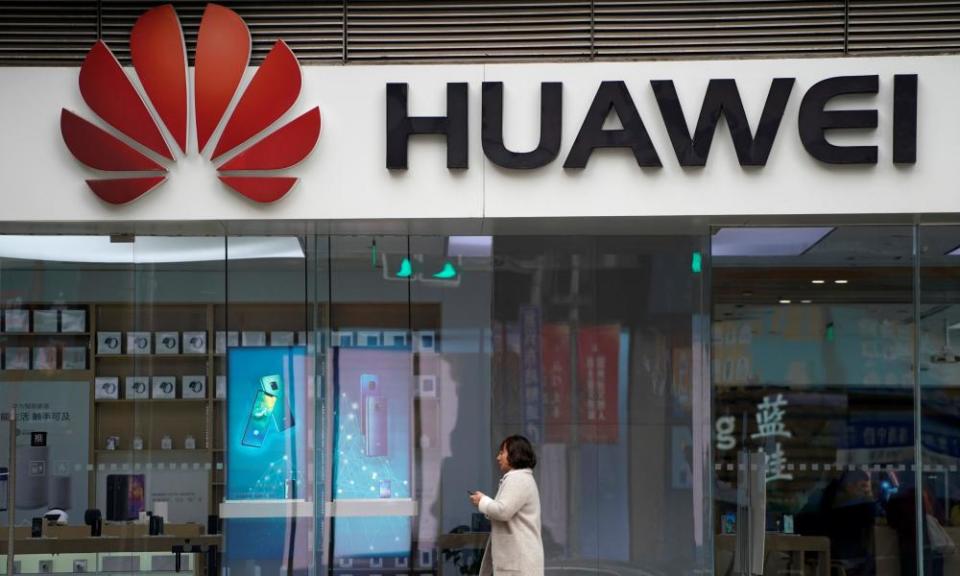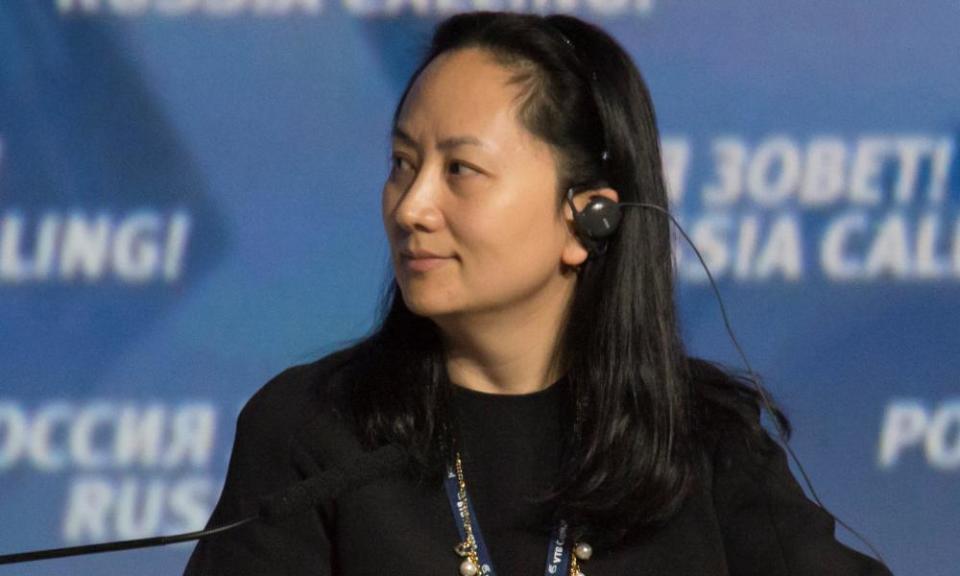China-US feud threatens Canada as Huawei executive due in court
Meng Wanzhou, Huawei’s global chief financial officer, will appear at a bail hearing on Friday morning, following her arrest last Saturday

The feud between China and the United States sparked by the arrest of a senior Huawei telecoms executive in Vancouver appears poised to inflict collateral damage on Canada, which has sought to build closer ties with Beijing amid an increasingly unpredictable trade relationship with its southern neighbour.
Meng Wanzhou, Huawei’s global chief financial officer, will appear at a bail hearing on Friday morning, following her arrest last Saturday.
She is sought for extradition to the US for allegedly violating US sanctions on Iran.
If granted bail, Meng will probably have to post bail with “a surety of several million dollars”, Gary Botting, a Vancouver lawyer who has experience with extradition cases, said. She would also have to give up her passport, he said.
Meng could also be fitted with electronic monitoring equipment, and the court could go so far as to order security to monitor her while she awaits a decision on extradition, lawyers said.
If Meng fights extradition, her case could go on for years, lawyers said, pointing to examples like Lai Changxing, a Chinese businessman who fled to Canada after he was implicated in a bribery case and fought extradition to China for 12 years. If she chooses not to fight, she could be in the United States within weeks, experts said.
On Thursday, Canada’s prime minister, Justin Trudeau, said he was made aware of the pending arrest, but says he did not interfere in the process and has not yet spoken with his Chinese counterpart.
“The appropriate authorities took the decisions in this case,” he told reporters. “We were advised by them with a few days’ notice that this was in the works but of course there was no engagement or involvement in the political level in this decision because we respect the independence of our judicial processes.”
But early evidence of political damage was readily apparent: the Chinese ambassador, Lu Shaye, quickly withdrew from a planned appearance before Canada’s foreign affairs committee in Ottawa.
China’s embassy strongly condemned Meng’s detention, issuing a statement that it would “take all measures to resolutely protect the legitimate rights and interests of Chinese citizens”.
The high-profile arrest has prompted fears that Canada could face costly economic and political retribution from China.
“President Xi refers to these companies as national champions. These are flag-carrying companies who are absolutely the face of China that Xi wants to be showing,” said Stephanie Carvin, a professor of international relations at Carlton University. “And if China is mad at Canada – and it sure looks like it is – there is the risk of retaliation.”
In recent years, China has quickly become one of Canada’s largest trading partners, a relationship that has becoming increasingly important as Canada navigates a mercurial relationship with the US. But the recent spat is likely to put the brakes on a free trade agreement between the two countries.

“When there is a crisis in the relationship – and there is now – China simply goes silent, high-level visits are put off, exchanges don’t happen,” said David Mulroney, Canada’s former ambassador to China. “I think we’re going into a deep freeze for as many months as it takes to resolve itself.”
Last year, total exports to China – minerals, wood products and canola – were valued at more than $18bn, and Beijing has previously been willing to use its economic power against Canada.
In one recent instance, it cited the blackleg fungus, which affects canola crops, as a justification for cancelling billions of dollars in canola exports. “I wouldn’t be surprised if we see suddenly another ‘blackleg scare’ with Canadian canola or a ban on Nova Scotia lobster,” said Carvin, adding that Canadian companies with a large presence in China – such as the train manufacturer Bombardier – are also at risk of punitive measures.
Other analysts were less alarmed: “The Chinese are not hot-headed,” said Gordon Houlden, head of the China Institute at the University of Alberta. “The government … tends to be cautious. I think we’ll enter a ‘wait-and-see’ period.”
Meng’s arrest comes amid a growing wariness in Canada over Huawei’s increasingly outsized influence and presence in the country.
In a rare public speech earlier in the week, Canada’s top intelligence official said that state-sponsored espionage – including through 5G cellular technology – is a critical threat to Canada’s national security.
Huawei has positioned itself as the global leader of 5G, but governments in the US, New Zealand and Australia have already moved to block the use of the company’s equipment.
American lawmakers recently warned their Canadian counterparts that the use of Huawei-developed infrastructure greatly increased the risk of surveillance and hacking.
Nonetheless, the Chinese telecom giant has continued to pour millions of dollars into cutting-edge research at Canadian universities – and has become the target of critics who say it keeps much of the new technology for itself, at the expense of Canadian labour and expertise.
Over the last decade, Huawei has committed nearly $50m to 13 universities across the country, with more investment pledged in the coming years.
Canadian professors have transferred the full rights to their inventions to Huawei at least 40 times, with the relationship between the universities and the telecom company producing hundreds of patents, many of which relate to next-generation 5G technology, according to an investigation by the Globe and Mail.
“We have a really, really important relationship with a country that’s totally unlike us. It offers us opportunities – but also in many ways poses a threat to Canadian interests and Canadian objectives,” said Mulroney. “So we have to be really thoughtful in terms of how we move forward.”
Reuters contributed to this report

